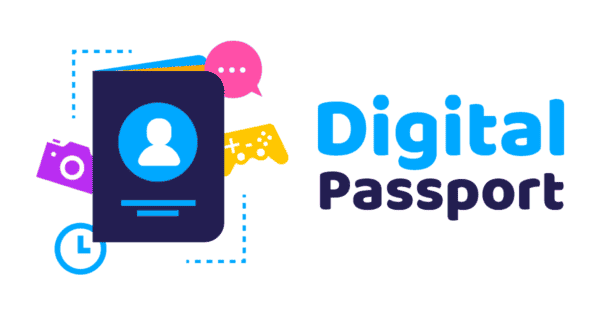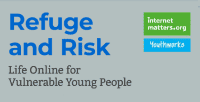The same research tells us children and young people in care find the freedom and opportunities that connectivity brings particularly beneficial. Foster carers in turn told us they often knew very little about the online lives of the children in their care and weren’t always sure how to start a conversation about it. Every new placement brings a requirement to renegotiate digital access.
The Digital Passport addresses these needs. It’s a communication tool for foster carers and their children, created to facilitate frequent and supportive conversations, agree proactive steps they can both take to keep the child safer online and record any safeguarding or concerning incidents, as well as celebrate what they enjoy online.
What does the Digital Passport offer?
- Help enable the child’s digital life in a positive and supportive way
- A tool for carers to support discussions and understanding about online life
- Supports agreements about internet access and device use between the carer and their child
- Consistency for a child or young person if they move to another placement or home environment
- A record to improve safeguarding
- A tool to help make the most of what technology offers and open up opportunities for children and young people, especially those in or leaving care
How does it work?
The Digital Passport can be used as a way of discussing views, feelings, and experiences around the child’s digital life and recording agreements made, as well as checking whether they are still working for the child. Talking about the Passport’s prompts can also open the way to checking if agreements are still working and making timely adjustments, as well as give children in care a way of opening up a conversation about how they can be best supported.
The Digital Passport has two main sections. One brings together information for the foster carer and other professionals about the digital life of the child. The other is for the child to express their wishes, feelings and interests. The children’s Digital Passport section can be owned and held by the child and gives them the opportunity to say what they want and need.
Why do we need it?
We know that the most effective way of keeping children safe online is for their carers to be interested in and supportive of their online lives, and for conversations to be meaningful and regular.
We also know that many foster carers are tech-hesitant and may default to removing devices and restricting digital access when for many young people in care it is the only way, they have of connecting to friends and, where appropriate, family.
The Digital Passport serves as a resource to support foster carers in managing the crucial conversations that will help them understand, support, and safeguard their child’s online life.
Who created it?
The Digital Passport was created by the UKCIS Vulnerable Users Working Group– a collaboration of specialists volunteering their time to help reduce the likelihood of children with vulnerabilities experiencing harm online.
The Digital Passport was the idea of Adrienne Katz (Youthworks) and was created by her with expert input from Adam Gordon (LGfL), Dr. Simon P Hammond UAE, and Steve Bailey (Barnado’s), in addition to input from all other members of the UKCIS Vulnerable Users Working Group.
It’s a privilege to work with such a talented team of professionals and we hope these documents support care-experienced children to enjoy the benefits of connectivity safely.






